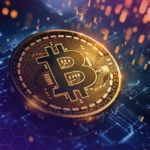As discussions intensify about the future landscape of non-fungible tokens (NFTs), the introduction of OpenSea’s SEA token is capturing the attention of digital asset enthusiasts. This moment is not simply another token launch; rather, it could significantly reshape perceptions around the valuation and interaction with digital art. With the unveiling of their tokenomics imminent, the potential impact on investors, community dynamics, and NFT governance raises intriguing possibilities.
Tokenomics, which refers to the economic models governing cryptocurrencies, will play a crucial role in the SEA token’s functionality. According to preliminary insights, OpenSea’s SEA token is designed to enhance the user experience by fostering a sense of decentralization and increased community participation. Unlike conventional tokens that primarily facilitate transactions, the SEA token empowers its holders with governance capabilities, enabling them to influence major platform decisions. This shift signals a movement towards greater user agency within the ecosystem.
Current discussions among community members are focused on the details surrounding distribution mechanisms and the utility of the SEA token. Early rumors suggest that the token may lead to lowered transaction fees and incentivize active participation through reward programs, generating excitement among potential investors and regular users alike.
A key component of OpenSea’s strategic vision is the establishment of the OpenSea Reserve, which houses culturally significant NFTs like CryptoPunk #5273. This ambitious investment of over $1 million aims not only to set a benchmark for evaluating NFT values but also to pay homage to the rich history of digital culture. The reserve represents more than a financial asset; it is a commitment to document and honor the evolution of digital art while building trust within the collector community.
The upcoming SEA token launch promises unique benefits for NFT collectors. Notably, holders may enjoy:
- Token Rewards: Engagement in OpenSea’s marketplace could result in earning SEA tokens, heightening user interaction.
- Lower Transaction Fees: Reduced fees may incentivize users to retain their SEA tokens, encouraging a more active trading environment.
- Boosted Liquidity: The introduction of a native token could significantly improve liquidity, creating a more seamless trading experience for buyers and sellers.
As the community eagerly awaits more information about airdrop plans and distribution strategies, these elements will be critical in shaping user engagement and liquidity in an ever-evolving NFT marketplace.
The approaching SEA token launch prompts fascinating questions regarding its broader implications for the NFT ecosystem. Could the introduction of native tokens ultimately make traditional fiat payment methods obsolete? The trend toward integrating governance and liquidity features into platforms like OpenSea points to a potentially transformative shift in how digital assets are traded and regulated.
Moreover, using culturally significant NFTs as collateral introduces a unique facet to OpenSea’s framework. While this could stabilize the market, it also raises vital questions regarding regulatory compliance. Navigating the fine line between innovation and regulation will be essential as the NFT marketplace continues to mature.
The anticipated SEA token launch, rich in promising tokenomics, represents a pivotal moment for the NFT sector. OpenSea’s focus on community governance, the preservation of digital culture, and attractive incentives for users establishes a bold new standard in the NFT marketplace. As investors and technology enthusiasts prepare for further announcements, the effectiveness of these strategies will largely depend on community involvement and successful implementation.
With the countdown underway, the future of NFT trading looms just beyond the horizon, filled with thrilling potential and transformative change.







